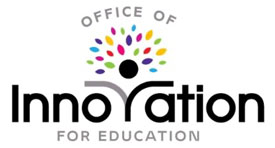Regional Capacity Assessment (RCA)
The primary purpose of the Regional Capacity Assessment (RCA) is to assist regional education agencies in their efforts to effectively support districts. The capacity of a regional education agency refers to the systems, activities, and resources that are necessary for the agency to be able to facilitate district-level implementation of Effective Innovations.
District Capacity Assessment (DCA)
The primary purpose of the District Capacity Assessment (DCA) is to assist school districts to implement effective innovations that benefit students. The capacity of a district to facilitate building-level implementation refers to the systems, activities, and resources that are necessary for schools to successfully adopt and sustain Effective Innovations.
School-wide Positive Behavioral Interventions and Supports Tiered Fidelity Inventory
The purpose of the SWPBIS Tiered Fidelity Inventory is to provide a valid, reliable, and efficient measure of the extent to which school personnel are applying the core features of school-wide positive behavioral interventions and supports.
Positive Behavioral Interventions and Supports District Systems Fidelity Inventory
The purpose of the District Systems Fidelity Inventory is to guide District Leadership Teams in the assessment, development, and execution of action plans that promote the capacity for sustainable, culturally and contextually relevant, and high-fidelity implementation of multi-tiered social, emotional, and behavioral systems of support and practices.
RTI Implementation Fidelity Rubric
The Response to Intervention (RTI) Fidelity Rubric is for use by schools to support fidelity of RTI implementation. The rubric is aligned with the essential components of RTI and the infrastructure that is necessary for successful implementation. It is accompanied by a worksheet with guiding questions and score points for use with a school’s RTI leadership team.
School Climate Survey
The School Climate Survey Suite is a set of four multidimensional surveys to measure student, teacher, administrator, faculty, and family perceptions of school climate: elementary, middle/high, school personnel, and family. The surveys are brief, reliable, and valid for assessing perceived school climate among students in Grades 3-12. Teams can use each survey separately or in combination to assess perceptions.
Considerations for Maintaining Screening and Progress Monitoring Practices in Virtual and Remote Settings
The purpose of this resource is to leverage existing systems and tools to implement screening and progress monitoring virtually. Using guiding questions and considerations, teams develop an implementation process.
Returning to School During and After Crisis: A Guide to Supporting States, Districts, Schools, Educators, and Students through a Multi-Tiered Systems of Support Framework
This document describes the use of a multi-tiered systems of support (MTSS) framework, like positive behavioral interventions and supports (PBIS), to restart classrooms and schools in a manner that all students, families, and educators are supported effectively, efficiently, and relevantly. This guide is a set of considerations for experienced leadership teams to enhance, adjust, or adapt state, district, school, and classroom action plans to meet the current context.









